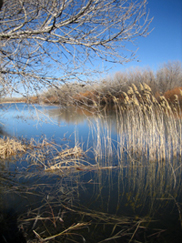
|






1. A Short History of Voices Given this experience, the organizers met with poets and editors from New York, Virginia, Colorado, California, and other parts of the country to discuss whether the idea of a national program of chapbook publication, and readings, could make its way. The idea of single-author chapbooks was the key feature of the program, since they could be less expensive to produce, and could concentrate on a single landscape or locale needful of conservation. To kick off this literary experiment, all the editors and advisors were asked to contribute a “Rolodex” list to whom we would send an announcement of the program, in the form of a four-page, full-color newsletter. And in September, 2008, off it went. A healthy core group of members joined, and our volunteer editors dug deep to augment that income. We managed to get our four chapbooks out for the first volume year, and by the end of that year to double our readership. Since then, with the help of gifts from charitable foundations, private individuals, and the ungoing support of our members, we were able to publish six more chapbooks. To celebrate the launch of two chapbooks, we sponsored free, regional festivals focused on the landscape they addressed (the Rio Grande corridor and the Great Smoky Mountains.) At these festivals, the chapbooks containing the author's work was distributed at no cost. We hoped to draw attention to the conservation issues relevant to that landscape, and to reach readers who might not otherwise have access to the work. Throughout the life of Voices from the American Land, we have been honored to publish a diverse and extraordinary group of writers. Working with them, and with the artists whose work also graces the pages, has been a tremendous privilege. We are grateful to each one. 2. Where We Are Now If you're able, we urge you to consider a donation to a group working toward landscape conservation and environmental justice. You may want to explore the McKenzie River Trust (https://mckenzieriver.org/), Amigos Bravos (https://www.amigosbravos.org/), Healthy Gulf (https://www.healthygulf.org), Honor the Earth (https://www.stopline3.org/take-action), or a local organization focused on a landscape that is precious to you. All but a few of our poets’ chapbooks are still available for purchase through September. If you're interested in placing a bulk order, please reach out directly to summer@voicesfromtheamericanland.org. 3. The Group |
|
|
Advisory Council: |
For background on our editors, please click here for a photo and brief bio. |
|






